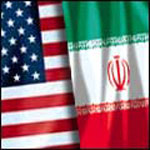 Washington Post – Editorial: The talks with Iran in Geneva this week appear to have produced little. Delegations from Iran, the United States and its Security Council allies mostly appear to have delivered statements; Iran did not respond substantively to the concerns raised about its nuclear program.
Washington Post – Editorial: The talks with Iran in Geneva this week appear to have produced little. Delegations from Iran, the United States and its Security Council allies mostly appear to have delivered statements; Iran did not respond substantively to the concerns raised about its nuclear program.
The Washington Post
Editorial
Thursday, December 9, 2010; A26
 THE TALKS with Iran in Geneva this week appear to have produced little. Delegations from Iran, the United States and its Security Council allies mostly appear to have delivered statements; Iran did not respond substantively to the concerns raised about its nuclear program. The only agreement reached – to meet again in Istanbul in late January – benefited Tehran in two ways: It advanced its aim of introducing Turkey, which opposed the last round of U.N. sanctions, into the negotiations, and it provided a means to postpone further international pressure. According to reports by international inspectors, Iran has the capacity to enrich another 150 kilograms of uranium – a quarter bomb’s worth when fully processed – between now and the next meeting.
THE TALKS with Iran in Geneva this week appear to have produced little. Delegations from Iran, the United States and its Security Council allies mostly appear to have delivered statements; Iran did not respond substantively to the concerns raised about its nuclear program. The only agreement reached – to meet again in Istanbul in late January – benefited Tehran in two ways: It advanced its aim of introducing Turkey, which opposed the last round of U.N. sanctions, into the negotiations, and it provided a means to postpone further international pressure. According to reports by international inspectors, Iran has the capacity to enrich another 150 kilograms of uranium – a quarter bomb’s worth when fully processed – between now and the next meeting.
The Obama administration’s assessment is that Iran’s very participation in the talks shows that its policy is working. Secretary of State Hillary Rodham Clinton has been arguing that sanctions adopted by the U.N. Security Council in June, and additional measures imposed by the United States and Europe, are “having an impact inside Iran.” She told an interviewer from the BBC last week: “So I think Iran comes to the table with a much more sober assessment of what isolation means, what the impact on their economy has been, and we hope that will cause them to have the kind of serious negotiation we are seeking.”
There was no evidence of that in Geneva. Instead, Iranian negotiator Saeed Jalili declared at a news conference that “halting uranium enrichment” – the West’s principal objective – “will not be discussed at the Istanbul meeting.” And on the eve of the talks, Iran announced that it had begun producing its own processed uranium ore, or yellowcake – another step toward creating an autonomous production line for bombs.
There is another logical explanation for Iran’s willingness to talk – that it seeks to delay further sanctions, create dissension among the United States and its allies, and distract attention from its continuing crackdown on the opposition Green movement. As Iran scholar Ray Takeyh of the Council on Foreign Relations points out, it’s probably not a coincidence that in the weeks before the Geneva talks, there were dozens more arrests of civil society activists and new interventions on university campuses.
This does not mean that the United States and its allies should not participate in further meetings. But it does mean that they should press forward simultaneously with other strategies to stop the Iranian nuclear program. That could include more sanctions, such as a full ban on landings by Iranian airliners in Europe. But it also should include greater efforts to support Iran’s internal resistance – which is the only force that in the end is likely to stop the drive for a bomb.


